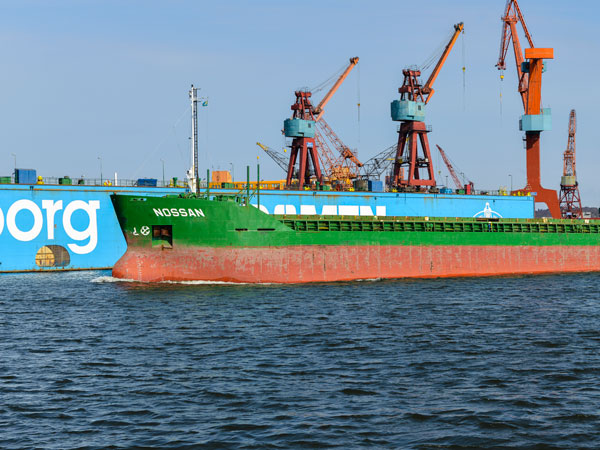How can environmentally differentiated charges and other policy instruments reduce the freight transports’ environmental impact? VTI has participated in a research project on this subject.
The project was led by IVL Swedish Environmental Research Institute and carried out in collaboration with the University of Gothenburg and the Port of Gothenburg, the Port of Trelleborg and the Ports of Stockholm. The factors that have been studied include how ports can apply environmentally differentiated charges and incentives to promote energy-efficient ships and lorries and an increased use of renewable fuels.

The Port of Gothenburg, Sweden, is one of the ports studied in the project. Photo: Magnus Fyhr/Mostphotos
VTI’s part of the project studied how higher fairway dues and pilot fees, higher rail track charges, higher port dues and the introduction of distance base charges for heavy trucks (a kilometre tax) that has been discussed some years ago , one by one and in combination, can reduce freight transports’ emissions.
Costs are crucial
Simulations using the national freight transport model Samgods, that is based on cost-minimization, show that the policy instrument that would yield the greatest emission reduction is the kilometre tax. The calculations also indicate that higher port dues in Swedish ports would in some cases result in shifts to ports in neighbouring countries.
“Costs are crucial for shippers. While the environmental aspect is important, at the end of the day transport costs determine how companies ship their goods,” says Inge Vierth, who along with Rune Karlsson represented VTI in the project.
The project was funded by Vinnova. The results of VTI’s sub-project can be found in the article “How to achieve less emission from freight transport in Sweden”.
Final project report: IVL report C365/2019: Environmentally differentiated port dues.
 Contact:
Contact:
Inge Vierth
inge.vierth@vti.se
VTI, Swedish National Road and Transport Research Institute, Sweden






Follow us: